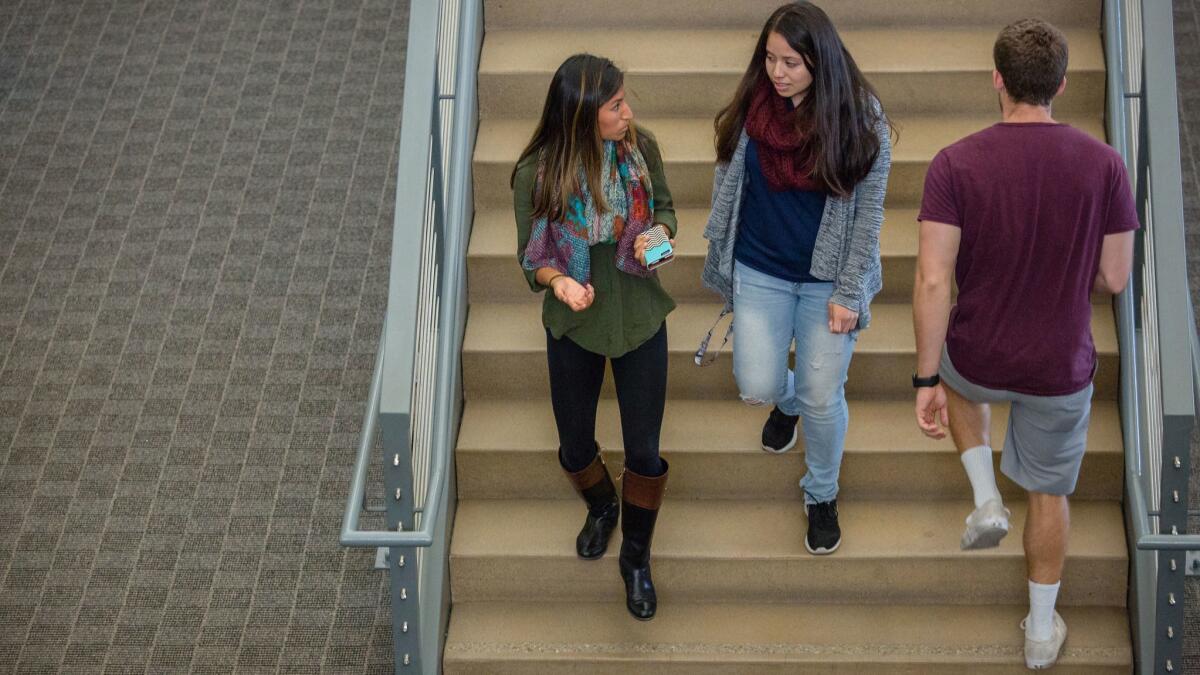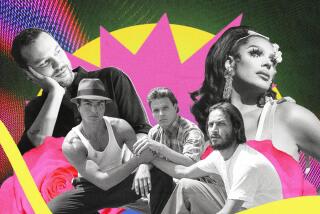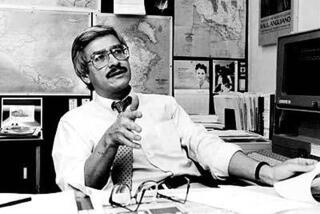Op-Ed: My Latinx students write what they know. And their words are powerful

The first college class I taught was Introduction to Creative Writing. I asked the students to write a personal essay on an incident that had a profound effect on them. Many wrote about family life, a beloved grandmother who died, a bully in middle school and other subjects you’d expect from young college students. But Veronica’s essay was different. It began with, “I was two, and sitting on my father’s shoulders when the National Guard shot into the crowd.”
She wrote about the day of Archbishop Oscar Romero’s funeral in El Salvador in 1980, when she was 2 years old. A right-wing death squad had murdered the priest, who often spoke out against the state-sanctioned violence against the Salvadoran people. Romero had become a leader and an advocate for the poor and oppressed of his country. This got him killed.
Veronica wrote about the ocean of people who had attended his funeral. They couldn’t all fit in the cathedral. She and her father stood in the plaza outside, alongside over 100,000 other mourners. Her father had just lifted her to his shoulders when the first bombs went off. Army sharpshooters on roofs shot into the crowd. Veronica fell from her father’s shoulders. From her toddler’s perspective, the legs of the people surrounding her resembled a moving forest. She remembered the roar of screams. Her father snatched her up and pushed his way into the cathedral, where others brought in the bodies of the dozens of El Salvadorans who had been killed or wounded.
This was one of the first essays I graded as a new professor at what is now Mount St. Mary’s University in Los Angeles, which stands on a mountain above Brentwood and overlooks all of the city and the Pacific Ocean. With its Spanish architecture and manicured grounds that look like the floor of heaven had fallen onto the Earth, it might appear to be a college for the elite, where only the wealthy attend.
They deserve more than a ‘good job’ or ‘interesting story.’ They deserve to be heard. They deserve to be read.
Far from it. Many of my students are from Mexico, Central America, Compton and East L.A. Part of the university’s mission is to open its doors to those who have little access to higher education — the poor and working class. Ours is a largely brown student body. As college students in the U.S., the Latinx students in my creative writing classes have unique and rare stories to tell.
Veronica wrote that essay in 1998, when she was 21. She didn’t write much about the politics of the time — the fact that the U.S. government was sending almost $2 million dollars a day to the Salvadoran military, the same military that sent death squads to kill civilians they deemed to be communists. Hers was a first-person account of a massacre, witnessed by a child.
Before sitting down to grade a batch of essays, I always brace myself. Grading papers is usually the most dreadful part of a professor’s job, but my students’ essays are often loaded with stories of injustice. Many are as powerful, and disturbing, as Veronica’s.
More recently, border-crossing essays are front and center. “I crossed the border when I was four. My mother and I crouched inside a hidden compartment in the floor of the bus.” “My parents came because of the gangs and death threats in El Salvador.” “I want to go to the protests for immigrant rights, but I’m DACA. They might catch me and take me away.” “ICE hit our apartments and took my neighbors, I felt helpless because I couldn’t do anything.”
These stories have proliferated since 2016, when it became clear that, under the new U.S. president, their lives as Latinx people were about to get harder. They write about the pain of racial slurs and accusations — about how they are called rapists, murderers and marauders who threaten U.S. national security. There is fear in their words but also anger, a recognition of the injustices of our times. They have a solid grasp of the political winds blowing against them, and most essays end with a barbaric yawp, a sense of “I’ll be damned if I let that guy in the White House bring me down.” Some write about becoming lawyers so they can fight for immigration rights. Others plan to run for office. Many simply commit themselves to the fight, through protests and voting.
Enter the Fray: First takes on the news of the minute »
Their writings also delve into dark territory. “Why do they hate us so much?” “Why are more people turning against us?” “Will this ever end?” These are brave essays, for it takes courage to explore the hate that rises from racism.
When I read their words it feels as though I’m holding their very lives in my hands. Long ago I realized I couldn’t merely give them notes on their grammar or quickly comment about the theme. Their papers are returned with my own mini-essays on them, a reflection on what they’ve dared to write. These students, at such young ages, have endured more tragedies than many of us will experience in our lifetimes: poverty, homelessness, deportation, persecution. They deserve more than a “good job” or “interesting story.” They deserve to be heard. They deserve to be read.
It can be emotionally exhausting to grade these essays, but it is also a great privilege. Writing about pain is in itself a bold act. My students suffer; they sometimes are afraid. And they are some of the most courageous people I know. I can see them as activists, leaders, lawyers and walking the halls of Congress. It’s easy to imagine, given the strength of their words.
Marcos M. Villatoro teaches creative writing at Mount St. Mary’s University.
More to Read
A cure for the common opinion
Get thought-provoking perspectives with our weekly newsletter.
You may occasionally receive promotional content from the Los Angeles Times.






